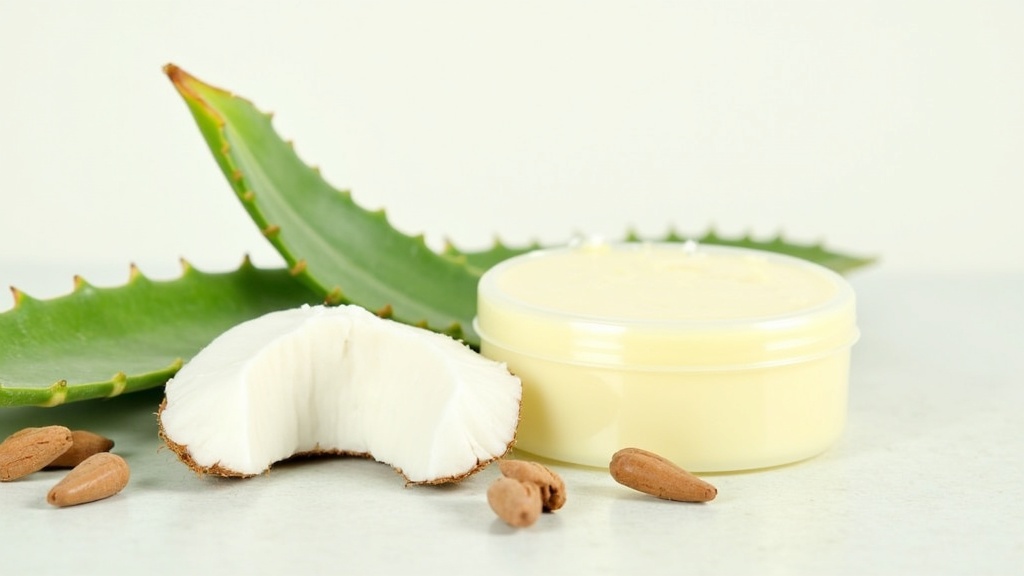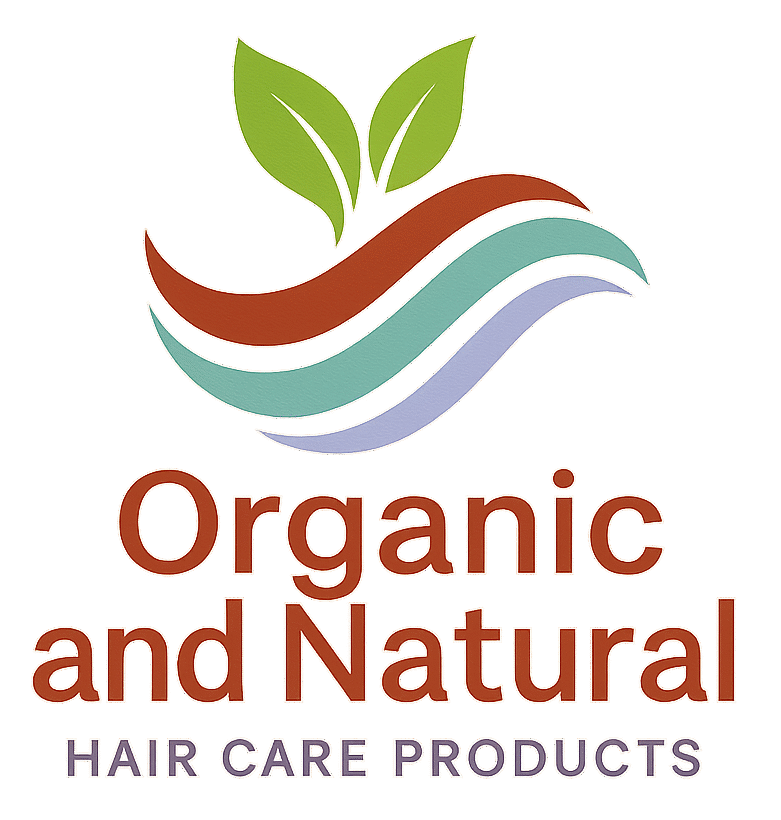Organic hair care is really gaining popularity, and for good reason. The buzz goes far beyond trendy marketing; people are looking for ways to give their hair the TLC it deserves, minus all the questionable chemicals. I’ve tried a bunch of different approaches in my own routine, so I know how overwhelming choices can get. If you’re weighing whether organic hair care is worth making the switch, there’s a lot to consider. Here’s everything I’ve learned about the perks, the key ingredients, and some tips for getting started if you want to take the organic route for healthier hair.

Why People Are Choosing Organic Hair Care
The idea behind organic hair care is pretty straightforward: use products with naturally sourced, minimally processed ingredients grown without synthetic pesticides or harsh chemicals. This switch is part of a bigger movement toward clean beauty and a push for transparency in what goes into everyday products.
Market research from Grand View Research forecasts a steady climb in the organic personal care sector, partly fueled by a growing awareness of ingredient safety and a desire for ecofriendly alternatives. Many people, myself included, have noticed the benefits after swapping out regular shampoo and conditioner for organic ones; fewer scalp irritations, a lighter feel, and often a much nicer scent thanks to essential oils rather than synthetic fragrances.
The history of organic hair care shows that natural remedies have been used for centuries. What’s new now is the easy access to a wide range of quality products for every hair type. Modern organic brands have dialed in effective formulations while sticking to clean sourcing, and they often pride themselves on ingredient transparency customers can trust.
Getting Started With Organic Hair Care
If you’re new to organic hair care, it helps to know the basics so you’re not lost reading labels or ingredient lists. Traditional hair care products can be packed with synthetic detergents, preservatives, and fragrances that might leave hair clean but can also dry out your scalp or cause buildup over time.
Switching to organic options means you’re swapping things like sulfates, parabens, and silicones for plant based surfactants, herbal infusions, and naturally derived oils and butters. These ingredients do the job without stripping away natural moisture or clogging follicles. A solid starting point is to try an organic shampoo and conditioner duo that matches your specific hair needs: curly, color treated, dry, or oily. A good organic product should clearly list key ingredients and avoid additives you can’t pronounce.
- Aloe Vera: Hydrates hair and soothes the scalp using vitamins and minerals that support natural shine.
- Coconut Oil: Deeply moisturizes, tames frizz, and strengthens hair to prevent split ends.
- Shea Butter: Nourishes dry hair, locking in moisture without making things feel greasy.
Besides these, many organic formulas include rosemary oil for stimulating the scalp and green tea extract for antioxidant benefits. These botanical ingredients do a lot of the heavy lifting in conditioning and protecting hair from environmental damage.
How To Make The Switch To Organic Hair Care
Jumping right into organic hair care isn’t complicated, but a few steps can make the transition smoother for your scalp and strands:
- Read The Labels: Look for familiar plant based ingredients and certifications like USDA Organic or Eco cert. These logos back up claims and show a commitment to quality.
- Clarify Your Hair: A clarifying wash (using apple cider vinegar works well) before starting organic products helps reset your scalp and remove old residue.
- Start Simple: It’s tempting to swap out everything at once, but beginning with a shampoo and conditioner is easiest. Once you find products you like, branch out to oils, leave ins, and masks specifically tailored to your hair’s quirks.
- Expect A Detox Period: Your hair may go through a short adjustment phase as it sheds buildup from previous products. This can last a few washes, so patience pays off and you’ll see genuine improvements with time.
- Listen To Your Hair: Everyone’s hair reacts differently. Take notes on how your scalp and strands feel after each wash to fine-tune your routine. Some people even keep a hair journal for comparison.
Gradual changes, along with careful product selection, can help you avoid any frustration and get the results you want without the learning curve feeling too steep. Another tip: don’t hesitate to ask for samples at health stores or salons, as many now offer travel sizes of their organic lines.
Potential Hurdles With Organic Hair Care (And How To Work Around Them)
Switching to organic hair care comes with its own set of challenges, but nothing that can’t be sorted out with a little patience and experimentation. Knowing the typical obstacles ahead can help you handle them with less hassle.
- Product Availability: Depending on where you live, finding truly organic products might take a bit of extra searching. Online retailers and local health shops usually offer solid options, and you can look for small artisan brands at local markets for unique blends.
- Price: Many organic brands cost a little more due to the quality of ingredients and sustainable sourcing. The higher initial price pays off in the long run through healthier hair and less need for treatment. Some shoppers stretch organic product use by alternating washes, which can stretch a bottle further.
- Performance Differences: Some organic formulas lather less than conventional products because they skip sulfates. This doesn’t mean they’re not working; it just takes getting used to lighter foaming and rinsing well to remove all the product.
- Preservation and Shelf Life: Organic products often contain fewer preservatives, so they might not last as long as conventional ones. Storing bottles away from direct sunlight and moisture can help them last longer, and using pump dispensers limits air exposure for better shelf life.
Product Availability
When trying to find organic options, I’ve had the best luck with online specialty shops and farmers’ markets. Reviews and ingredient transparency give a clue about product quality and effectiveness, so it pays to check both before buying. If you have unique hair needs, consider reaching out to brands with questions—customer feedback often guides future product development, too.
Price
While organic shampoos and conditioners usually come at a higher cost, I’ve noticed I use less per wash because they tend to be more concentrated. It kind of balances out and leads to less clutter in my shower, just a few things that actually work well for my hair needs.
Performance Differences
The lather from organic shampoo can be lighter than traditional products. All thanks to the lack of strong detergents. After a few washes, my hair and scalp adjusted, and now I actually prefer that clean, but not squeaky, feeling. Just make sure to rinse thoroughly.
Preservation and Shelf Life
If you’re dealing with shorter shelf lives, just store your products in cool, dry places. Many organic brands stamp their bottles with best-by dates, so it’s easy to keep track and use them while they’re fresh. If you’re unsure about product freshness, a quick sniff or texture check can help you spot when it’s time to replace an older bottle.
None of these issues are deal breakers, especially if you’re mindful about what you’re buying and how you use it. Plus, the healthy hair payoff is well worth it once you find the right fit.
Organic Hair Care Tips You’ll Want To Try
Tweaking your hair care routine with some of these easy tips can make a big difference in the results you see. Adapting your routine seasonally can also give your hair an extra boost when weather changes.
Scalp Massages with Oils: Using light pressure and your fingertips, work a bit of warm coconut or jojoba oil into your roots before you wash. This stimulates circulation and helps loosen product buildup. You might also try rosemary or tea tree oil drops in your carrier oil if your scalp is itchy or flaky.
DIY Hair Masks: Blending ingredients like honey, avocado, and aloe vera in your own kitchen offers a salon-style deep conditioning session without the mystery chemicals. Apply once a week for major hydration—just be sure to rinse thoroughly.
Switch To Silk or Satin Pillowcases: These smooth fabrics help organic treatments work better by reducing friction and nighttime frizz. It’s a small investment that can lead to fewer tangles and even better retention of styling products.
Rotate Products: Hair can get used to the same formula over time. Swapping between two or three favorite organic shampoos every few months helps maintain results and keep your scalp happy. Switching up your routine according to seasonal changes can also help.
Go Easy On Heat: Allowing hair to air dry lets organic products work their magic, reducing split ends and keeping natural moisture in. If you need to style with heat, use a low setting and always apply a natural heat protectant, like argan oil.
Don’t Forget The Diet: Healthy hair starts from the inside out. Eating a diet rich in vitamins, minerals, and protein can make a real difference in how quickly you see results from your organic regimen. Foods like salmon, nuts, and leafy greens are packed with nutrients that support healthy hair growth.
Real-Life Benefits Of Going Organic
Many people (I’m one of them) notice less itchiness, softer hair, and fewer allergies after giving up harsh shampoos and conditioners. Organic hair care doesn’t just stop at pretty results; there are environmental perks too since most brands follow ecofriendly manufacturing and packaging practices.
- Better For Sensitive Scalps: No harsh chemicals means less risk of redness, flaking, or irritation.
- Improved Long-Term Health: Regular use helps balance natural oils, strengthening your hair and supporting healthier regrowth. Stronger, healthier hair over time can mean fewer salon visits for trims or fixes.
- Environmental Impact: Choosing biodegradable packaging and crueltyfree formulas helps cut down on pollution and animal testing. Supporting small organic brands contributes to local economies and sustainable farming.
Continuing organic hair care practices can even inspire others to make the switch, creating a ripple effect of healthier choices. Plus, brand loyalty to transparent companies means you’re backing values you believe in.
Frequently Asked Questions
Here are a few questions I get most often about switching to organic hair care:
Question: How long does it take to notice results?
Answer: Most people see changes in texture and scalp health within two to four weeks, but it depends on how much buildup you’re clearing out and your natural hair cycle. Stick with your new routine and don’t be discouraged if transition takes a bit longer for stubborn build-up.
Question: Can organic hair care help with hair growth?
Answer: While no product can change your genetics, healthy, unclogged follicles from gentle cleansers and nourishing oils boost conditions for stronger, fuller hair. Supporting scalp health gives you the foundation needed for hair to reach its potential thickness and length.
Question: Are all-natural and organic the same thing?
Answer: “Natural” doesn’t always mean organic. Organic products follow stricter rules for ingredient sourcing and certification. Look for official seals or a full ingredient list to check which is which, and double-check packaging for ecofriendly details too.
Wrapping Up
Swapping to organic hair care offers a lot of cool benefits, from softer textures to lighter, happier scalps. Taking it slow, reading labels, and listening to your hair help you figure out what works best. Whether you’re in it for the health perks, supporting sustainability, or just testing out the latest trends, organic products offer a gentler, cleaner way to care for your hair every day.
The difference is something you feel and see after just a few weeks. That natural, healthy shine is the best reward—and your scalp will thank you, too!
